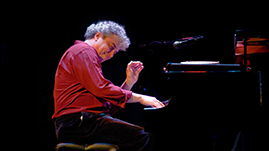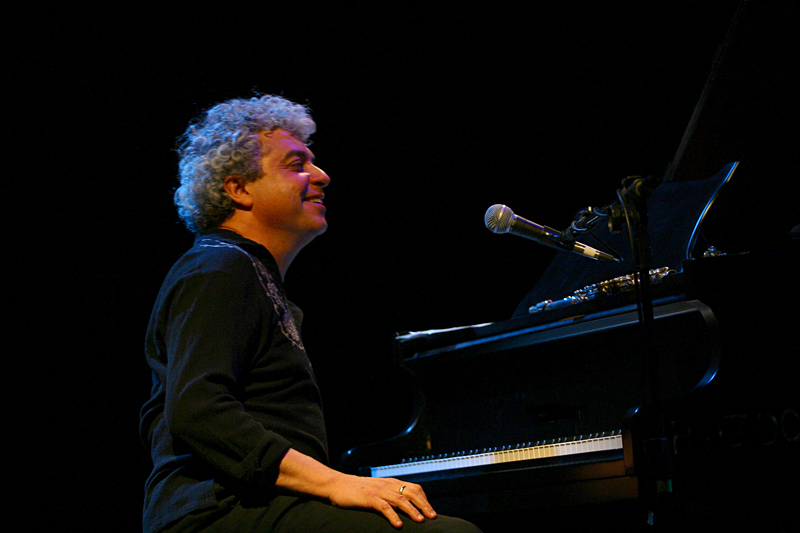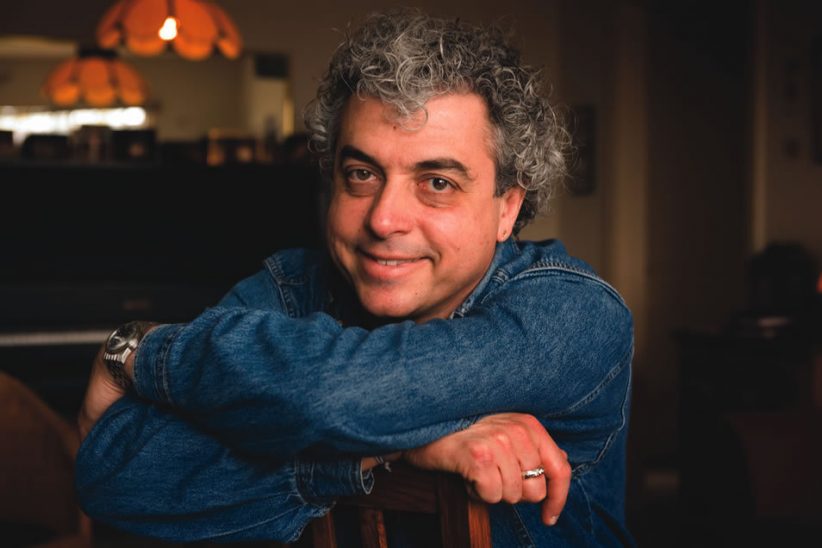

Jovino Santos Neto
Three-time Latin Grammy nominee Jovino Santos Neto, a master pianist, composer and arranger, is among the top Brazilian musicians working today.
Seminar Description
Seminar Description
Intuitive Jazz Improvisation
Welcome to this in-depth lesson on jazz improvisation. In this session, we explore how to approach improvisation in a way that prioritizes intuition and melodic development rather than relying solely on theory and chord-scale relationships.
Many musicians find that theory, while useful, can sometimes become a limitation rather than a tool for freedom. Instead of thinking purely in terms of scales and chord extensions, we focus on a more intuitive and melodic approach to improvisation.
The Limits of Theory in Improvisation
While jazz theory provides a strong foundation, an over-reliance on theoretical constructs can make improvisation feel rigid. Traditional methods, such as the chord-scale approach, often encourage a bottom-up perspective—building from the root, through the 3rd, 5th, 7th, and beyond. This can result in long sequences of numbers that are difficult to apply in real-time improvisation.
Instead, we suggest thinking of improvisation as an interaction with the harmonic environment of a tune. Every song has its own unique world, much like entering a house with different rooms and atmospheres. Rather than focusing on what you will play, ask yourself: "Where am I in this musical space?"
Thinking Melodically & Structurally
A great improvisation is primarily a melody. Regardless of whether a solo is angular or flowing, it should always connect melodically with the harmonic structure. To develop this:
- Use call and response phrasing between ascending and descending lines.
- Alternate short intervals with long intervals to create contrast.
- Sing what you play to develop a natural, vocal-like phrasing.
- Focus on harmonic resonance rather than theoretical correctness.
Two-Chord Improvisation
An excellent way to develop improvisational freedom is by working with just two chords at a time. While complex chord changes can be daunting, limiting yourself to two chords—such as D-7 to G7—allows for deep exploration.
- Start with simple "shell voicings" (root and 7th or root, 3rd, and 7th).
- Experiment with the Dorian mode over the minor chord and dominant scale variations over the G7.
- Use pentatonic scales to create flowing melodic ideas.
- Incorporate triads (Fmaj, Cmaj over D-7) to add harmonic depth.
Practicing in this way strengthens your ability to hear and navigate changes naturally rather than relying on memorized scale patterns.
Exploring Jazz Standards Through Improvisation
Using jazz standards as a foundation for improvisation is essential. We explored the tunes "What Is This Thing Called Love", "All The Things You Are", and "Wave", analyzing how their harmonic movement provides inspiration for melodic improvisation.
- "All The Things You Are" moves through multiple tonal centers, offering a great challenge in voice leading and melodic continuity.
- "Wave" utilizes a blues-based harmonic structure disguised within bossa nova rhythms, perfect for experimenting with modal interchange and harmonic variations.
By internalizing these tunes, you develop an intuitive sense of movement, allowing improvisation to flow naturally.
Five Key Practice Tips
- Sing Your Melodies – Use your voice to guide your improvisation before playing the notes. This strengthens the ear-to-hand connection.
- Limit Your Options – Focus on two chords at a time before tackling full progressions. This builds confidence in smaller, digestible pieces.
- Use Simple Voicings – Shell voicings and triads allow for clear harmonic structures without overcomplicating your left-hand playing.
- Develop Melodic Contrast – Alternate between ascending and descending lines, short and long intervals, and rhythmic variation.
- Explore Different Harmonic Approaches – Avoid over-reliance on the chord-scale method. Instead, experiment with voice-led motion and harmonic tension-release strategies.
By approaching improvisation in an intuitive way, you’ll develop a more expressive, dynamic, and personal connection to jazz. Keep exploring, keep listening, and most importantly—keep playing! 🎶







Absolutely brilliant! Worth revisiting regularly. Many thanks, Jovino.
I’m glad you enjoyed the session Richard.
If you would like myself or Jovino to cover certain topics in upcoming seminars just let us know.
Cheers,
Hayden
Thank you Hayden
I got your screen shot and replied. Now I’ve found what video you were referring to, so disregard my reply. It’s a bitch getting old. I’m sorry
I just want to play good solo piano at this time in my life. No more playing out, jan sessions, lugging heavy equipment around, late night, bar fights etc. just beautiful music.
Thank’s a lot! Such a great thing to listen to the way improvisers talks about their own music perspective